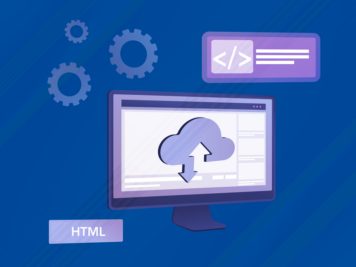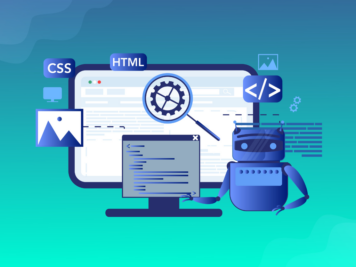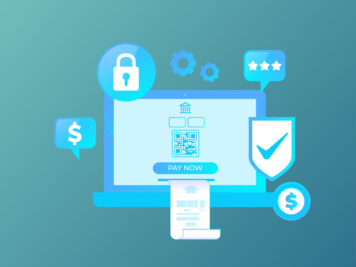Outsourced software product development has long been a strategic talking point in boardrooms and brainstorming sessions. In fact, the demand for external expertise is higher than ever, with 81% of companies claiming to lack skilled tech staff (according to EY and iMocha surveys).
For small and medium startups with bold ideas but limited resources, outsourcing is a lifeline as it is an effective path to growth. For large corporations, it is a strategic move to stay relevant in an increasingly competitive market. However, the decision to outsource is not without its challenges. Selecting the right product development partner, managing risks and ensuring successful outcomes are important factors to consider.
If you are planning to outsource software product development in 2025, this article is intended to help you make informed decisions and achieve effective results.
Why go for outsourced software product development
Outsourced software development is an immediate relief to overburdened teams. But it also offers strategic benefits that can drive long-term success. Here are the key benefits of outsourced software product development.
Cost efficiency
According to Deloitte’s 2022 Outsourcing Survey, 57% of CEOs opted to outsource primarily to save money. Collaborating with external teams provides skilled developers at lower costs, reducing project expenses and overhead. It eliminates the need for costly development stacks and allows in-house staff to focus on core, growth-driven operations.
A software startup can outsource to a product development company in a low-cost region like India, accessing expertise and technology without large infrastructure expenses. This frees up resources for investment in marketing and business growth.
Access to specialized talent
Outsourcing gives you access to specialized talent, such as blockchain, AI, or machine learning, which is important for projects that need CTO-level support or unique technical knowledge that might not be available in-house.
For example, if you are developing an AI-based product but lack the necessary in-house expertise, outsourcing to a dedicated AI team can ensure the success of the project. These collaborations guarantee reduced time-to-market and increased longevity.
One of our clients, a mature U.S.-based SaaS platform in the email marketing domain, improved their email engagement by using AI-generated content. They didn’t have the expertise, so our experts helped them with the GenAI solution implementation using ChatGPT and DALL-E. It helped them increase customer engagement with email content and eye-catching visuals.
The results were impressive. Existing clients praised the new email format and generated strong interest from potential customers.
Improved time-to-market
Developing a product or application takes time and varies greatly depending on the size and complexity of the project. While basic applications are not time-consuming, developing a complex platform can take a year or two.
Companies can accelerate development by outsourcing to agile and deadline-driven partners. This approach reduces non-core tasks while ensuring quality. It helps businesses achieve faster time-to-market and maintain a competitive edge.
We did the same for a health insurance client. They were building a life insurance policy administration system from scratch. With their team stretched thin, they turned to us as their tech partner. By collaborating with their SMEs, we delivered the first version in just four months, helping them meet market demands.
Cost-effective workforce management
Outsourcing offers the flexibility to scale staffing with project needs, saving costs on full-time hires. This is crucial during growth or new product launches, letting companies add resources when needed and reduce them when not, ensuring agility and profitability.
By outsourcing, technology companies might hire developers to work on a software product during the early stages and then scale down the team once the product is stable and available to the public. Once the worries about the cost burden of maintaining a large in-house development staff are gone, the company can respond quickly to changes in project goals.
Technology and innovation advantage
Investing heavily in the newest technologies is essential if you want to stay ahead of your peers. You can gain a competitive advantage by building native or cross-platform apps or by researching fields such as wearables and augmented and virtual reality. For example, adding augmented reality (AR) to retail apps can increase user engagement by offering a virtual try-before-you-buy experience.
Using the latest tech stack is essential. Outsourcing is a smart way to onboard experts with experience and know-hows of latest technologies, such as artificial intelligence and automation. Such teammates can also make your project more enticing for customers and investors and improve your customer retention rate.
What could go wrong?
Outsourced software product development has several challenges, but not all businesses face them. You can easily overcome them by staying updated and using advanced technologies.
Let us discuss some of these challenges:
Time zone differences
If your development team is in a different time zone, it can hamper your communication. The development process can be disrupted, and deadlines can be extended as a result of delays in discussions and decision-making.
To make it work, you can share realistic expectations, plan meetings when everyone can join, set clear time zone rules and avoid micromanaging the development team. This will help everyone work together better and get things done more easily.
Quality and delivery timelines
When outsourcing your project, it is normal to worry about when you will get your project and if it will be of good quality. It is not always easy to make sure the code and documents the external team creates meet standards. Also, it is harder to force outsourced developers to adhere to the quality standards than it is when you work with in-house developers.
To overcome this challenge, you can conduct thorough research before agreeing to anything. Explain clearly what you expect and involve a Quality Assurance tester in verifying the quality of the codebase. Also, ask the team to share their code on developer platforms like GitHub regularly so any mistakes can be fixed quickly. This way, you can easily manage both the quality and delivery timelines of your software project.
Language barriers and cultural differences
External teams might pose language and communication barriers. Communication challenges worsen if external teams don’t understand the company culture or how to collaborate. This can result in poor product quality and dissatisfaction on both ends.
To fix this, you can establish a communication channel and use a single primary language for all documentation and interactions. The process can be further streamlined with regular meetings and documentation and tools like Slack or Teams.
Also Read: How to effectively communicate with offshore development team?
Security and confidentiality concerns
When sharing ideas and data with an outsourcing partner, there’s a risk of breaches or misuse. Stay safe by researching vendors on trusted platforms like Clutch or G2. Clearly outline penalties, legal repercussions, and intellectual property rights in your agreements to protect your ideas.
Remember, both parties have the right to legal protection, and if you hire a good outsourcing partner, they will use agreements like NDAs for extra safety. This will increase your data security.
How to choose right outsourced software product development partner
Outsourcing should be considered a long-term growth plan and not a short-term solution. Companies that cultivate long-term relationships with trusted outsourced teams can build a talent pool for future projects. Over time, these teams gain a deep understanding of the company’s products, goals, and culture, leading to more efficient development cycles and successful outcomes.
Here are the factors to consider while choosing the right software product development outsourcing partner.
Technical expertise and experience
When it comes to outsourcing, technical know-how is what makes things work smoothly. But before you select a vendor, make sure you gather complete information about them. Ask questions about how they work, what technology and tools they use, the solutions they are familiar with, the expertise/skills their team have, and most importantly their commitment towards building innovative core tech products.
Don’t just look at surface-level credentials; dig deeper into their portfolio. Have they successfully tackled projects similar to yours? Do they have a strong track record in delivering complex products on time and within budget?
While price is important, lower cost doesn’t always mean high quality. It could also lead to lack of knowledge, poor communication, or poor delivery. An overemphasis on cost-cutting usually results in higher costs in the long run involving tasks such as fixing errors, managing delays, or redoing substandard work.
The real value of software development outsourcing is not just in savings, but in choosing a partner whose technical competence matches your business requirements. Experience should always take precedence over cost. A competent and experienced team delivers complex tasks efficiently, ensuring high-quality results that exceed expectations.
Company reputation and reliability
Don’t just take a company’s word for it—take a closer look. Explore their website, past projects, case studies, client reviews, and any awards or certifications they’ve earned. These can give you a clearer picture of who they really are.
Also, search for reviews and social proof on platforms like Clutch, G2, Quora, GoodFirms, etc. These platforms have detailed lists of software companies with reviews and ratings to help you make an informed decision. You can even reach out to one of their clients on social media platforms and can take their opinion too.
Cultural fit and work ethics
Selecting the right software outsourcing partner is not just about finding coding skills. You need a good culture fit!
Cultural alignment can impact project effectiveness, which is sometimes overlooked in outsourcing. The ecosystem of startups and large companies are also completely different. Startups, for example, are often fast-paced and deadline-driven, but larger companies may place greater value on more structured procedures.
Understanding this distinction is important when setting expectations for how a project will be managed. To ensure a smoother working relationship throughout the project lifecycle, choose a partner whose work ethic complements your company’s pace and values.
Project management and methodology
Do not just check skills; ask about their development process too! It is important to understand how your outsourced partner works and manages the projects. While Agile methodology is widely used, they are not suitable for every project. Depending on the nature and goals of your project, techniques such as Kanban, Scrum, or even Waterfall may be more suitable.
It is critical to discuss the approach that is suitable for the complexity and timeline of your project. An excellent partner will be adaptable and able to tailor their approach to your project requirements. Make sure they are familiar with a variety of approaches and have a track record of effectively implementing them.
Cost structure and budget considerations
Cost plays an important role when choosing a software outsourcing vendor, but it should not be the sole factor. Good vendors typically offer flexible pricing options to suit the needs of their different customers.
Before deciding on a fee, understand your project’s scope and budget accordingly. Check if your project is small or large and then select vendors that align with your needs. Transparency about costs and potential changes is important to avoid last-minute surprises. Don’t choose the cheapest option, as it may lead to poor quality and end up costing more later.
Data security and intellectual property protection
Sharing sensitive business information with prospective vendors can be risky if not managed professionally. While trust plays an important role, it cannot be measured in the beginning. As a business owner, it is your duty to ensure your data and IP rights are safe with an outsourcing partner.
Additionally, ensure that your potential outsourcing partner adheres to industry best practices for protecting sensitive information. This includes data encryption, secure communication protocols, and extensive privacy standards. Check that they comply with data protection regulations and can provide assurances through contracts such as confidentiality agreements to protect your company’s intellectual property.
Scalability and resource availability
During the early stage of product development, there is always uncertainty about processes, resources, and other requirements. Having a rigid model can limit your progress and hinder your ability to adapt to changing market needs.
That is why choosing a prospective partner with flexibility and scalability is important. This can help them to adapt to your changing requirements along the way and provide necessary support and expertise to overcome any challenges that may arise.
Also Read: 3 Steps to Hire an Offshore Software Development Team
Conclusion
Outsourced software product development is not a last resort for companies with limited resources—it’s a strategic imperative for businesses of all sizes looking to innovate, scale, and remain competitive. From startups to large enterprises, outsourcing offers a path to growth that combines cost-effectiveness with access to specialized talent, while accelerating time to market and improving product quality.
But, as with any strategy, the key to success is execution. Choosing the right partner, fostering collaboration, and maintaining clear communication are all essential to making outsourcing work for your business. When done right, outsourced software product development isn’t just a way to meet immediate needs—it’s a long-term investment in your company’s future.
If you want to explore how outsourcing can fit into your growth plans, we can help you. We have developed core tech products for 200+ companies across stages in the last 21 years. You can talk to our experts.









